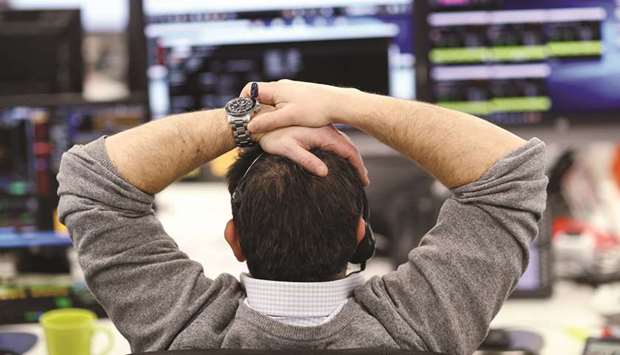European and US stocks pivoted higher yesterday as President Donald Trump stoked investor optimism over talks to end the US-China trade war.
Discussions between US and Chinese officials to find a way out of an impasse that has seen the world’s top two economies impose tariffs on hundreds of billions of goods and imperil global growth have fuelled gains in recent days.
But the lack of substantive information at the end of the three days of talks gave investors the jitters, and stocks pulled back in Asia, as well as most of European trading and at the open on Wall Street.
However fresh comments by the US president helped bring about a return of optimism, said market analyst Joshua Mahony at online trading firm IG.
“Trump’s claim that the US is having ‘tremendous success’ in talks with China should be taken with a pinch of salt, yet to some extent the fact that talks have sustained this long without breaking down highlights a shift in tactics by both sides,” he said in a note to clients.
Stocks picked off their lows, with most leading US and European indices moving into positive territory, at least temporarily.
Across Europe, London’s FTSE 100 rose 0.5% to close at 6,942.87 points; Frankfurt’s DAX 30 was up 0.3% at 10,921.59, while Paris’s CAC 40 was down 0.2% at 4,805.66.
The Dow was flat as European exchanges closed, while the S&P 500 and Nasdaq Composite were both down less than a tenth of a percentage point.
Market gains in recent days have also been fuelled by the US Federal Reserve taking a distinctly softer tone on interest rate hikes.
Fed boss Jerome Powell said last week that there was no “pre-set” plan on rates, triggering a global stocks rally.
The Fed had previously been expected to continue raising interest rates in 2019, and concerns about rising borrowing costs sapping growth was a key factor in driving equities lower late last year.
Minutes from the latest Fed policy meeting released on Wednesday showed it was happy to ease the pace of rate hikes to prevent a slowdown in the economy.
US central bankers said they “can afford to be patient” owing to low inflation and uncertainty about the outlook.
While there would likely be more increases in borrowing costs, they said it would be a “relatively limited amount”.
The comments sparked a dollar sell-off in Asia, with the greenback weakening across the board and the Chinese yuan moving to its highest level against the greenback since late August.

A broker looks at financial information on computer screens on the IG Index trading floor in London (file). The FTSE 100 rose 0.5% to close at 6,942.87 points yesterday.
